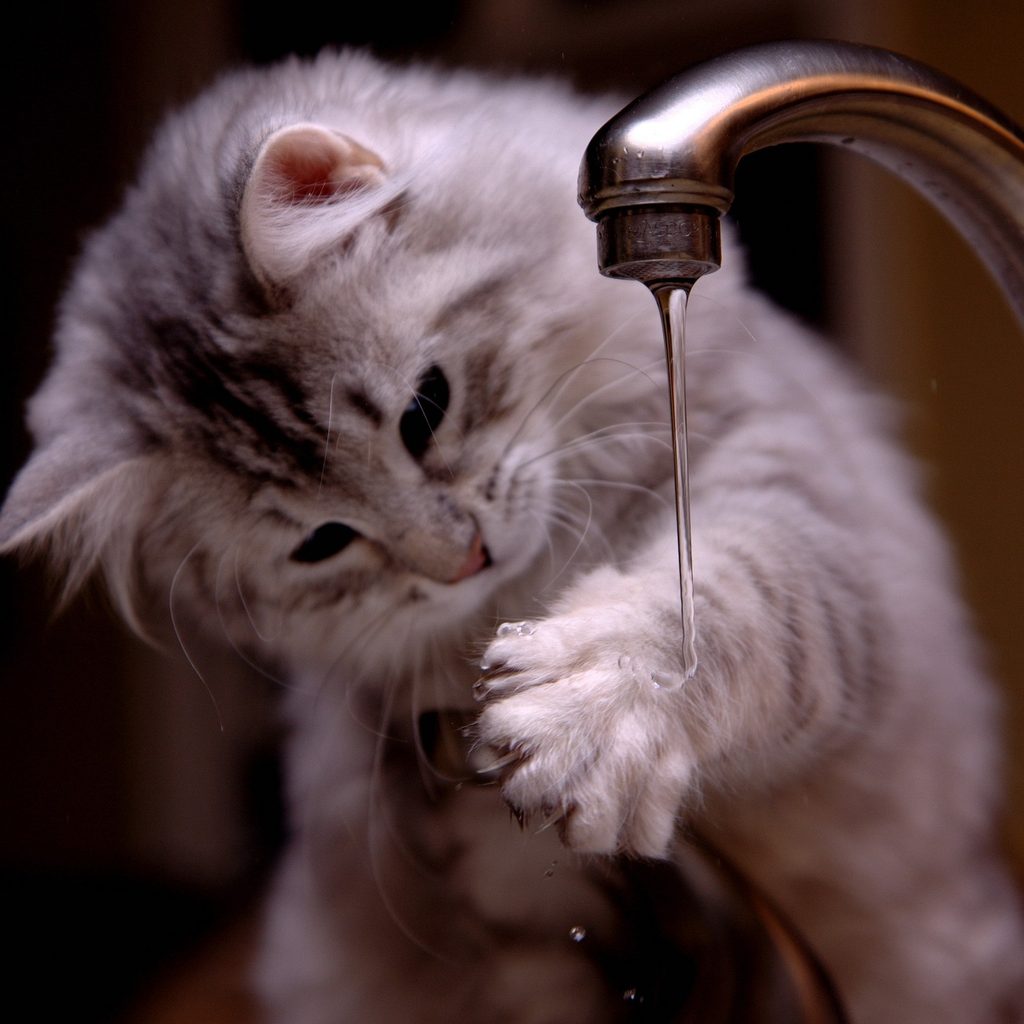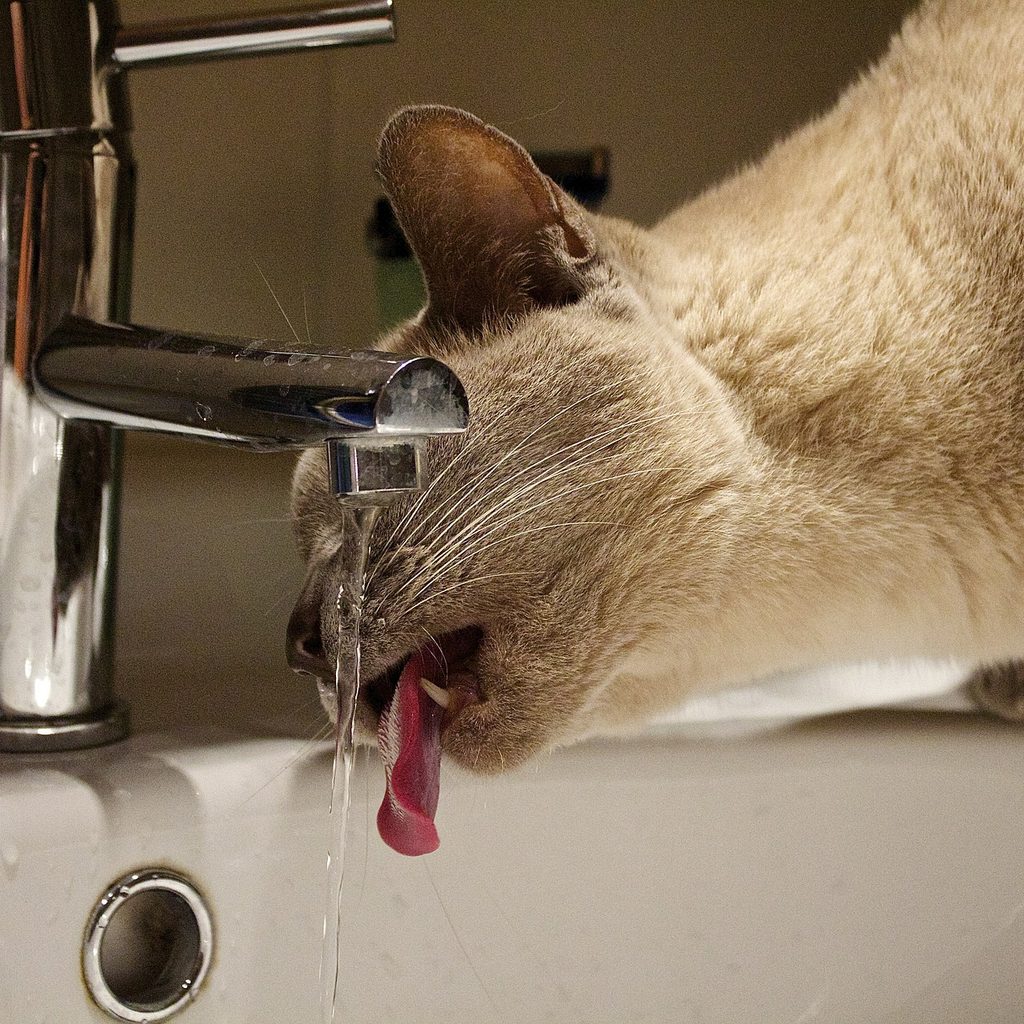Cats are known for hating water — that is, until you turn on the tap. Then, running water becomes something like a magnet for your cat, prompting him to jump up on the counter, drink from the tap, and maybe even paw at the water. That can make for all sorts of fun when you’re trying to wash dishes or brush your teeth and are fighting your cat for the tap. This affinity for running water might seem like an unusual behavior at first, but it’s very common in cats, and there are some logical reasons behind it. So why do cats like running water, and what should you do when your cat wants to drink out of the tap instead of a bowl?

Why do cats like to drink running water?
Chewy explains that your cat’s love of drinking running water may be rooted in her instincts. Wild cats survived by drinking from rivers and streams. They instinctively knew that standing water, like water in a puddle, could make them sick. As a result, those wild cats — your cat’s ancestors — sought out fresh, running water, and your cat may feel motivated to do the same.
It’s also possible that your cat doesn’t like the bowl that holds her water. Some cats prefer bowls made of certain materials, like glass. If the bowl is too small, it can push back against your cat’s whiskers as she drinks, which can make her sensitive. You can try experimenting with bowls of different sizes and materials and even try moving the bowl to different quiet locations in your home to see if your cat prefers one over another.
Your cat may also just think that tap water tastes better than the water in her bowl. This fresh, cool water may be more appealing than the older water in the bowl. Try cleaning your cat’s bowl and adding in fresh water at least once daily (preferably two or three times a day) to see if this motivates your cat to drink out of the bowl more often.
Why do cats like the sound of running water?
According to Vet Street, your cat may be attracted to the sound of running water because it’s easy for him to hear and locate. Cats have a great sense of hearing, so it’s easier for your cat to find water that’s running than it is for him to rely on his sense of sight to find a bowl of water in the house.

Why do cats like to stick their head under running water?
Vet Street also explains that your cat may like to splash in the tap because it’s fun. The sound of running water can catch your cat’s attention, and cats may enjoy playing with the stream. Though most cats don’t like being wet, your cat might make an exception and paw at the water or even stick his head underneath the stream.
Though many cats hate water, it’s possible that your cat is the exception to the rule. Maybe your frisky feline is the kind who’s happy to go outside in the rain or go for the occasional dip. While this behavior is somewhat uncommon, it’s not all that rare. You’ll just have to observe your cat to determine exactly how he really feels about water.
Regardless of whether your cat loves or hates getting wet, chances are he’ll appreciate having a pet water fountain in the house. A water fountain gives your cat continuous access to flowing water, and it can save you money on the expensive water bill that could occur if you were to run your tap to entertain your cat. Water fountains recirculate the same water, so all you need to do is clean the fountain and add some more water in periodically.
When shopping for a water fountain for your cat, you’ll find plenty of options. Look for a fountain that includes a water filter, and make sure that you can easily buy replacement filters since you’ll need to change them out periodically. Think about how easily you can clean the fountain, too. Buying a model that you can easily disassemble and thoroughly clean will make it easier to ensure your cat has plenty of fresh water available to him. Fountains do make noise while they run, but you might find the noise soothing. Still, plan to locate the fountain in your kitchen, bathroom, or another space where it won’t bother you when you go to sleep at night.


